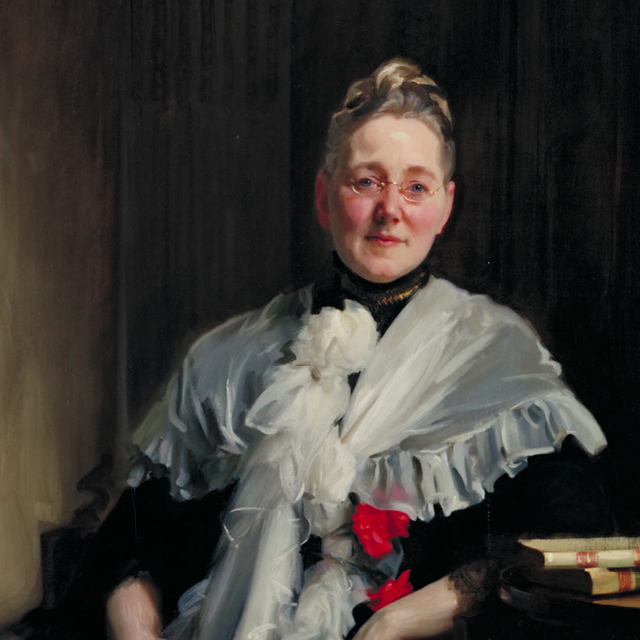When the Johns Hopkins University School of Medicine was founded 125 years ago, women were top of mind — though perhaps not for everyone. Philanthropist Mary Elizabeth Garrett made a major contribution to the school with one stipulation: Women must be accepted using the same criteria as men. Though the path to gender equality has been uneven over the years, the school of medicine has remained committed to the advancement of women.
A new executive leadership program, the Mary Elizabeth Garrett Executive Leadership for Women Faculty, is part of that commitment. Dec. 12 marked the graduation of the program’s first cohort of 13 women faculty members.
Offered through the Office of Women in Science and Medicine, and in collaboration with the Office of Talent Management at the Johns Hopkins University, the yearlong program requires that a participant be nominated by a department chair, division chief or vice dean, who would then serve as the person’s executive sponsor. Candidates participated in a 360-degree feedback assessment, and curriculum and action learning projects in their department. The program’s ultimate goal is to create a pipeline of women to fill leadership roles across Johns Hopkins Medicine.
Barbara Fivush, senior associate dean for women in science and medicine, says the graduation of the program’s first cohort was “just another part in hitting gender equity strides at Johns Hopkins.” Since the school’s founding, more than 250 women have become full professors.
A highlight of the graduation event was the 10th presentation of the annual Vice Dean’s Award, which recognizes people who have demonstrated a commitment to recruiting, mentoring and advancing women faculty members. The 2018 recipient — and first-ever male mentor selected — is James Ficke, director of orthopaedic surgery.
“Gender shouldn’t matter when it comes to mentorship,” said Ficke. “It’s about establishing the relationship of trust, and trust takes time.” As a mentor to four residents, Ficke shared that he makes time to have personal conversations with them, often over coffee at Balducci’s rather than at 5:30 a.m. before rounds.
Dawn LaPorte, professor of orthopaedic surgery and one of the program’s graduates, spoke highly of Ficke, who was her mentor. Referring to him as a “servant leader,” LaPorte said Ficke has embraced the mission of increasing diversity and inclusion in their department, especially by growing the number of women clinical faculty members from one to six.
Following the award presentation, cohort graduates spoke about their action learning projects, which addressed topics such as improving collaboration and breaking down silos, standardizing care among entities, improving the patient experience and improving pathways to successful research funding.
Jennifer Lawton, chief of the Division of Cardiac Surgery, spoke about improving operating room culture for both patients and staff members. In line with the cardiac surgery team’s motto, We CARE (Conscientious, Accountable, Respectful, Engaged), Lawton implemented a “timeout” before every operation to introduce the patient and go over the steps of the procedure, and to empower staff members by reminding them that they play a vital role in the patient’s outcome. She hopes the project will help generate a cohesive operating room team and create a culture in which everyone feels able to speak up any time.
Due to the success of the inaugural program, the Office of Women in Science and Medicine plans to launch a second cohort in 2019.
Watch a recording of the Dec. 12 graduation event.

